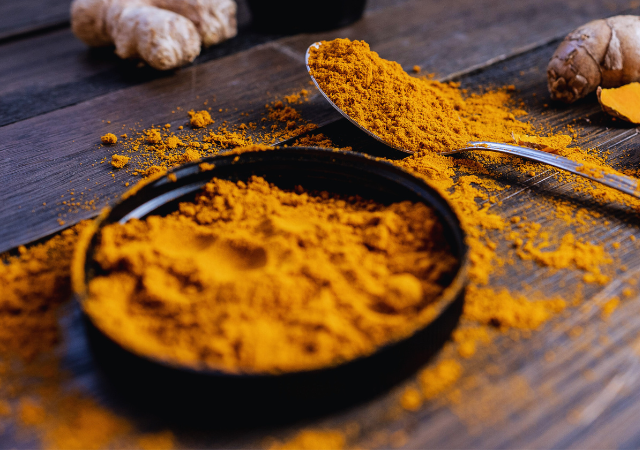Is a Turmeric Mask Good for the Face?
Introduction
In the world of skincare, the search for natural remedies that enhance our beauty and promote healthy skin has never been more fervent. Among the many ingredients that have captured our attention, turmeric stands out. Known for its vibrant yellow color and its prominent role in culinary traditions, turmeric has also gained fame as a potential skincare wonder. Turmeric face masks, in particular, have become a DIY skincare trend, celebrated for their purported ability to deliver a radiant complexion. But does this golden spice truly live up to the hype when it comes to facial skincare?
In this comprehensive guide, we will delve deep into the world of turmeric masks, examining their potential benefits, how to make them, precautions to take, and whether they are suitable for all skin types. By the end of this article, you’ll be equipped with the knowledge needed to make an informed decision about whether a turmeric mask is good for your face.
-
The Benefits of Turmeric for the Skin

1. Anti-Inflammatory Properties
Turmeric contains an active compound called curcumin, which is known for its powerful anti-inflammatory properties. Inflammation is a common factor in many skin issues, such as redness, puffiness, and acne. Applying a turmeric mask to your face may help reduce inflammation and calm irritated skin.
The anti-inflammatory effects of turmeric can be particularly beneficial for individuals with conditions like rosacea or eczema, where inflammation plays a central role. It may help soothe the skin and provide relief from discomfort.
2. Antioxidant Effects
Turmeric is also rich in antioxidants, which are essential for protecting the skin from damage caused by free radicals. Free radicals are unstable molecules that can harm skin cells, leading to premature aging, wrinkles, and other signs of skin damage.
By applying a turmeric mask, you may help neutralize free radicals and prevent oxidative stress on your skin. This can contribute to a more youthful and radiant complexion over time.
3. Brightening and Evening Skin Tone
Another claim associated with turmeric masks is their ability to brighten the skin and even out skin tone. The curcumin in turmeric is believed to inhibit the production of melanin, the pigment responsible for skin color. This can potentially reduce the appearance of dark spots, hyperpigmentation, and uneven skin tone.
Many people use turmeric masks to achieve a natural glow and a more uniform complexion. However, it’s essential to note that results may vary depending on individual skin types and the specific formulation of the mask.
4. Potential Acne-Fighting Properties
Acne is a common skin concern, and turmeric’s anti-inflammatory and antibacterial properties may be beneficial for those with acne-prone skin. Turmeric can help reduce redness and swelling associated with acne, while its antibacterial properties may combat the bacteria that contribute to breakouts.
While turmeric masks are not a substitute for dedicated acne treatments, they can be a complementary addition to your skincare routine for managing acne symptoms.
-
How to Make a Turmeric Face Mask

Now that we’ve explored some of the potential benefits of turmeric for the skin, let’s discuss how to make a basic turmeric face mask. There are various recipes, but we’ll start with a simple one and then explore some variations.
Basic Turmeric Mask
Ingredients:
- 1 teaspoon of turmeric powder
- 1 tablespoon of yogurt (plain)
- 1 teaspoon of honey (optional)
Instructions:
- In a small bowl, combine the turmeric powder and yogurt.
- Add honey if desired for added moisture and antibacterial properties.
- Mix the ingredients until you have a smooth paste.
- Apply the mask evenly to your clean face, avoiding the eye area.
- Leave it on for 15-20 minutes.
- Rinse the mask off with warm water.
- Pat your face dry with a clean towel.
Turmeric and Yogurt Mask
Ingredients:
- 1 teaspoon of turmeric powder
- 2 tablespoons of plain yogurt
Instructions:
- Mix the turmeric powder and yogurt in a bowl until you have a smooth paste.
- Apply the mixture to your face and let it sit for 15-20 minutes.
- Rinse off with lukewarm water.
Turmeric and Honey Mask
Ingredients:
- 1 teaspoon of turmeric powder
- 1 tablespoon of raw honey
Instructions:
- Combine the turmeric powder and honey in a bowl.
- Apply the mixture to your face, massaging it gently for a few minutes.
- Leave the mask on for 15-20 minutes.
- Rinse it off with warm water.
These are just a few examples of turmeric mask recipes, and you can customize them to suit your skin’s needs. However, it’s crucial to be cautious when using turmeric on your face, as it can potentially stain your skin and clothing.
-
Potential Side Effects and Precautions

While turmeric can offer several benefits for the skin, it’s essential to be aware of potential side effects and take precautions when using it in your skincare routine.
1. Staining of the Skin
One of the most common concerns with using turmeric on the face is the potential for staining. Turmeric has a bright yellow color that can temporarily dye the skin. While this staining is usually not permanent and can be removed with gentle cleansing, it can be inconvenient.
To minimize staining, consider using a minimal amount of turmeric in your masks and avoid leaving the mask on for an extended period. You can also use turmeric masks in the evening to allow any residual staining to fade overnight.
2. Allergic Reactions
Some individuals may be sensitive or allergic to turmeric. Before applying a turmeric mask to your face, it’s advisable to perform a patch test. Apply a small amount of the mask to a discreet area of your skin, such as the inside of your wrist, and wait for 24 hours to see if you experience any adverse reactions.
If you notice itching, redness, or any other signs of an allergic reaction during the patch test, it’s best to avoid using turmeric on your face.
3. Turmeric for Different Skin Types
Turmeric may not be suitable for all skin types. While it can benefit many, individuals with very sensitive or extremely dry skin may find turmeric masks to be too harsh. Turmeric can be drying to the skin, so it’s essential to balance it with moisturizing ingredients, as seen in some of the mask recipes.
4. Consulting a Dermatologist
If you have any pre-existing skin conditions, such as severe acne or eczema, or if you’re unsure about using turmeric on your face, it’s wise to consult a dermatologist. They can provide personalized advice and recommend suitable skincare products or treatments tailored to your specific needs.
-
Tips for Using Turmeric Masks Effectively
To maximize the potential benefits of turmeric masks while minimizing potential side effects, consider the following tips:
1. Frequency of Use
Using a turmeric mask once or twice a week is generally sufficient for most people. Overuse may lead to skin irritation or dryness.
2. Combining Turmeric with Other Ingredients
You can customize your turmeric mask by incorporating other skin-friendly ingredients. For example, adding yogurt for probiotics, honey for hydration, or oatmeal for gentle exfoliation can enhance the mask’s effectiveness.
3. Aftercare and Moisturizing
After rinsing off a turmeric mask, follow up with a gentle moisturizer to replenish any lost moisture and lock in the benefits. This is especially important if you have dry or sensitive skin.
4. Sun Protection
Turmeric can make your skin more sensitive to sunlight. Ensure you apply sunscreen with adequate SPF protection when going outside to prevent sun damage and potential skin discoloration.
-
Real-Life Experiences and Testimonials
To gain a better understanding of the real-world effectiveness of turmeric masks, let’s explore some user stories and testimonials:
User Stories and Their Results
Many individuals have reported positive experiences with turmeric masks, noting improvements in their skin’s overall texture, reduced redness, and a more youthful appearance. Some have even credited turmeric masks with helping to fade acne scars and hyperpigmentation.
Common Challenges and Solutions
While turmeric masks can be beneficial, users have also encountered challenges such as staining, temporary dryness, or sensitivity. To address these issues, some have opted for shorter application times or have experimented with different mask recipes to find what works best for their skin.
Personal Experiences with Turmeric Masks
Personal experiences with turmeric masks can vary widely. Some users have found them to be a game-changer in their skincare routines, while others have not seen significant results. It’s essential to remember that skincare is highly individual, and what works for one person may not work for another.
-
Alternatives to Turmeric Masks
If you’re hesitant about using a turmeric mask or if it doesn’t suit your skin, there are alternative skincare options to consider:
1. Other Natural Ingredients for Skincare
There is a wide range of natural ingredients with proven skincare benefits, such as aloe vera, green tea, and honey. Experimenting with different natural ingredients can help you discover what works best for your skin.
2. Store-Bought Skincare Products with Turmeric
If you’re intrigued by the potential benefits of turmeric but prefer a ready-made solution, you can explore skincare products that contain turmeric as an ingredient. Look for reputable brands that offer turmeric-infused serums, creams, or masks.
3. Professional Skincare Treatments
For more advanced skincare concerns or targeted treatments, consider consulting a dermatologist or skincare professional. They can recommend clinical treatments like chemical peels, laser therapy, or prescription medications tailored to your specific needs.
Conclusion
In the quest for beautiful and healthy skin, the allure of turmeric masks is undeniable. Turmeric’s anti-inflammatory, antioxidant, and brightening properties make it an appealing ingredient for skincare enthusiasts. However, it’s crucial to approach turmeric masks with caution, taking into account potential side effects, individual skin types, and the need for proper aftercare.
Turmeric masks can indeed be beneficial for many individuals, helping to improve skin tone, reduce inflammation, and combat acne. Still, they may not be suitable for everyone. The key is to be informed, conduct a patch test, and consult a dermatologist if you have any concerns or pre-existing skin conditions.
Ultimately, the effectiveness of a turmeric mask for your face depends on your unique skin and preferences. Whether you choose to incorporate turmeric into your skincare routine or explore other natural alternatives, the journey to healthier, more radiant skin begins with understanding your specific needs and making informed choices.

My name is Rohit Vagh and I’m a content writer specializing in fashion and lifestyle. I have three years of experience in this field and have written various articles. My writing style is creative and engaging, and I strive to create content that resonates with my readers. I have a deep passion for fashion and am constantly researching the latest trends and styles to make sure my readers are up to date. I’m excited to continue my career in blogging, and I’m always looking for new opportunities in the fashion and lifestyle space.





